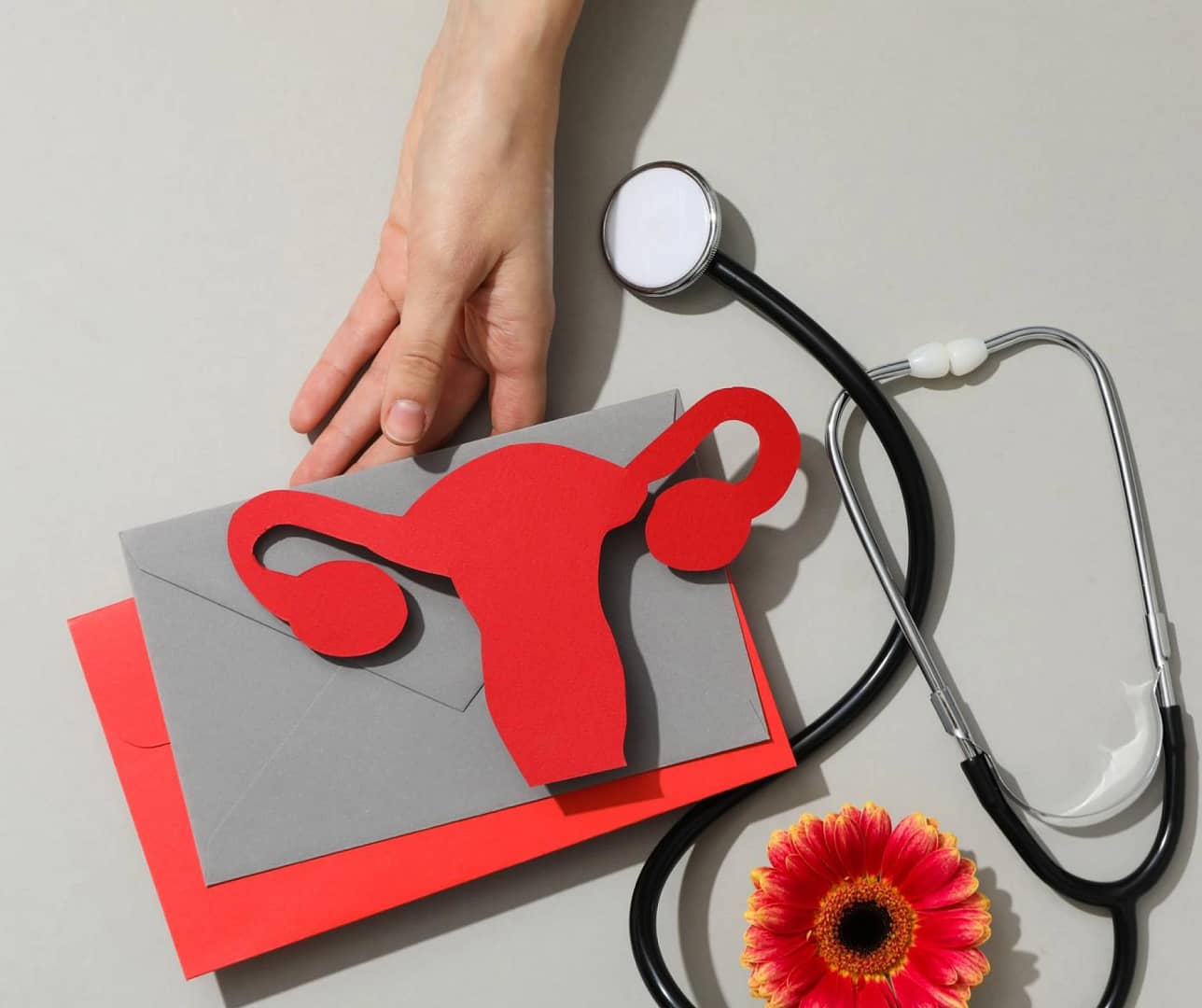
The Role of Nutrition and Lifestyle in Women's Reproductive Health
Introduction
A woman’s reproductive health is deeply influenced by her diet and lifestyle choices. From hormonal balance to fertility, every aspect of reproductive health is affected by nutrition, physical activity, stress management, and sleep patterns. In this guide, we’ll explore how nutritional habits and lifestyle modifications can improve reproductive health and provide practical tips for maintaining optimal well-being.
The Connection Between Nutrition and Reproductive Health
Proper nutrition is vital for supporting reproductive function, hormone regulation, and overall fertility. Deficiencies in essential nutrients can lead to menstrual irregularities, hormonal imbalances, and complications in pregnancy.
Key Nutrients for Women's Reproductive Health (Based on CDC & WHO Recommendations)
- Folic Acid – Essential for fetal development and reducing birth defects. .
- Iron – Helps prevent anemia and supports oxygen transport in the blood.
- Omega-3 Fatty Acids – Regulates hormone production and supports brain health.
- Vitamin D – Crucial for ovulation and overall fertility.
- Antioxidants (Vitamin C & E) – Help reduce oxidative stress that affects egg quality.
- Zinc – Supports egg maturation and hormonal balance.
- Magnesium – Aids in reducing stress and improving progesterone levels.
How Diet Impacts Reproductive Health
Best Foods for Hormonal Balance and Fertility
Eating a balanced diet with whole foods rich in essential nutrients can significantly improve reproductive health.
Foods to Include:
- Leafy greens (spinach, kale, broccoli) – High in folic acid and iron.
- Whole grains (quinoa, oats, brown rice) – Stabilize blood sugar and support hormonal balance.
- Healthy fats (avocados, nuts, olive oil) – Enhance hormone production.
- Lean proteins (fish, chicken, beans, lentils) – Provide essential amino acids for reproductive function.
- Dairy products (Greek yogurt, cheese, milk) – Support estrogen production and bone health.
- Berries (strawberries, blueberries, raspberries) – Rich in antioxidants that protect eggs from oxidative stress.
How Diet Impacts Reproductive Health
Best Foods for Hormonal Balance and Fertility
Eating a balanced diet with whole foods rich in essential nutrients can significantly improve reproductive health.
Foods to Include:
- Leafy greens (spinach, kale, broccoli) – High in folic acid and iron.
- Whole grains (quinoa, oats, brown rice) – Stabilize blood sugar and support hormonal balance.
- Healthy fats (avocados, nuts, olive oil) – Enhance hormone production.
- Lean proteins (fish, chicken, beans, lentils) – Provide essential amino acids for reproductive function.
- Dairy products (Greek yogurt, cheese, milk) – Support estrogen production and bone health.
- Berries (strawberries, blueberries, raspberries) – Rich in antioxidants that protect eggs from oxidative stress.
Foods to Avoid for Better Reproductive Health
Certain foods can negatively impact hormone levels and fertility.
- Processed foods & trans fats – Can lead to insulin resistance and hormonal imbalances.
- High sugar intake – Spikes insulin levels, affecting ovulation.
- Excess caffeine – May impact estrogen levels and reduce fertility.
- Alcohol & smoking – Disrupts hormonal balance and lowers egg quality.
- Soy-based products (excessive consumption) – Contains phytoestrogens that can interfere with natural hormone levels.
Lifestyle Choices That Support Reproductive Health (Backed by Research)
Nutrition alone isn’t enough—lifestyle modifications also play a critical role in supporting reproductive well-being.
- Regular Exercise for Hormonal Health
- Moderate physical activity (such as walking, yoga, swimming) can help balance hormones and improve ovulation.
- Strength training helps regulate insulin sensitivity, which is crucial for conditions like PCOS.
- Avoid excessive high-intensity workouts, as they can disrupt menstrual cycles.
- Stress Management and Mental Well-being
Chronic stress can lead to hormonal imbalances that impact fertility and menstrual health. .
- Practice mindfulness techniques such as meditation or deep breathing exercises.
- Engage in relaxing activities like reading, music, or nature walks.
- Ensure adequate sleep (7-9 hours) to support hormone regulation.
- Maintaining a Healthy Weight
- Being underweight or overweight can affect ovulation and reproductive function.
- Aim for a balanced BMI through a combination of healthy eating and regular exercise.
- Consult a doctor for personalized weight management strategies if needed.
- Reducing Exposure to Environmental Toxins
Certain chemicals in food, cosmetics, and household products can disrupt endocrine function.
- Choose organic produce when possible to reduce pesticide exposure.
- Use BPA-free plastics to avoid hormone-disrupting chemicals.
- Limit exposure to processed meats and packaged foods with artificial preservatives.
Reproductive Health and Pregnancy Preparation
For women planning to conceive, maintaining reproductive health through diet and lifestyle choices is crucial. Here are some additional steps:
- Start taking prenatal vitamins (especially folic acid) at least three months before conception.
- Track ovulation to understand your fertile window.
- Reduce stress and ensure adequate rest to support optimal hormone function.
- Maintain hydration and gut health, as they play a key role in overall reproductive function.
Common Myths About Nutrition and Fertility
- Myth: Drinking more milk increases fertility.
✅ Fact: While dairy provides essential nutrients, excessive intake of full-fat dairy may disrupt hormonal balance in some women.
- Myth: Eating soy-based products causes infertility.
✅ Fact: Moderate consumption of soy is safe, but excessive intake may impact estrogen levels.
- Myth: You can eat whatever you want and still conceive.
✅ Fact: A nutrient-dense diet is essential for optimal reproductive health.

FAQs (Frequently Asked Questions)
Folic acid, iron, omega-3 fatty acids, vitamin D, and zinc are essential for reproductive well-being.
Yes, chronic stress can cause hormonal imbalances, affecting ovulation and menstrual cycles.
Excessive caffeine intake (more than 200mg per day) may negatively impact estrogen levels and fertility.
Moderate exercises like yoga, walking, and strength training are beneficial, while high-intensity workouts should be done in moderation.
Conclusion
Maintaining optimal nutrition and lifestyle habits is essential for supporting women’s reproductive health. If you’re also planning for pregnancy, consult a healthcare provider for a personalized prenatal care plan. for additional insights. A balanced diet rich in essential nutrients, combined with regular exercise, stress management, and avoiding environmental toxins, can significantly improve fertility and hormonal balance. If you are experiencing reproductive health concerns or planning to conceive, consult a healthcare professional for personalized guidance
It is generally safe for pregnant women to climb stairs if they do so carefully and without overexertion, but they should avoid it if they feel dizzy, tired, or have been advised against it by their doctor.
